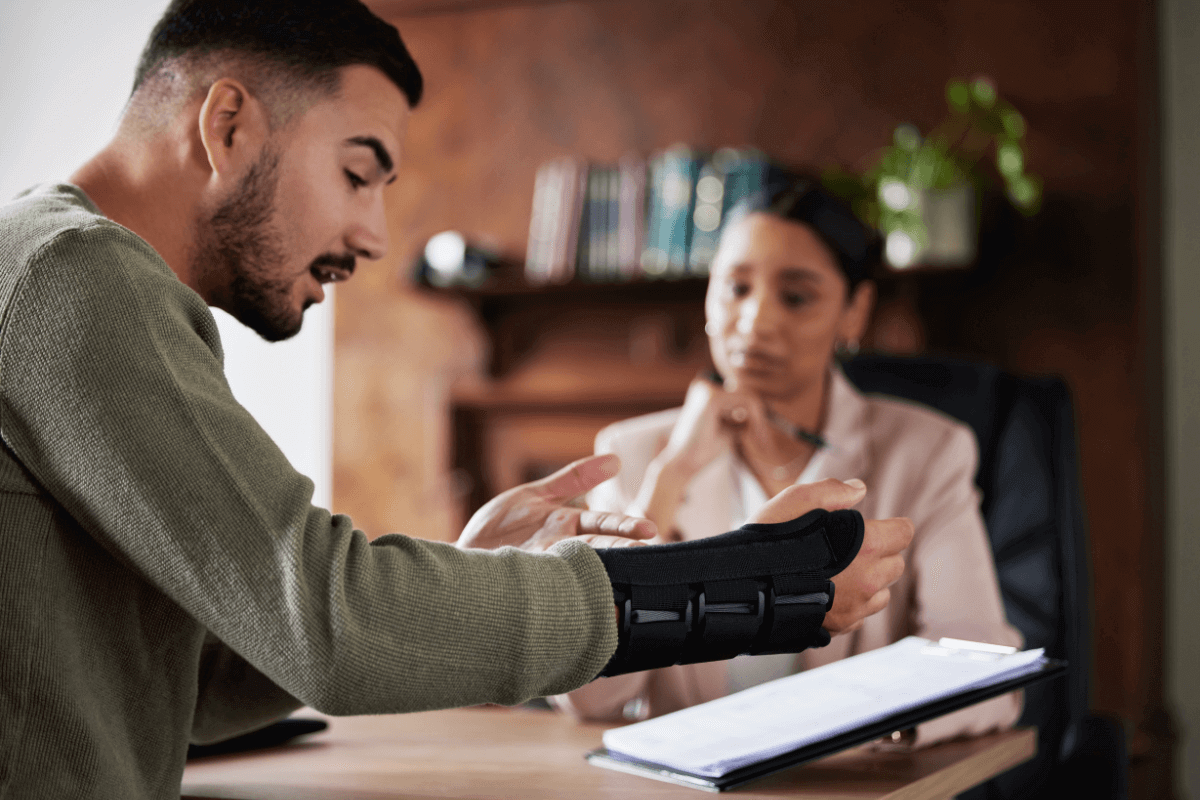
Partner at AKD Lawyers
Practice Areas: Personal Injury, Insurance Claims

Traumatic brain injuries (TBIs) are some of the most serious injuries a person can suffer after an accident. Among them, diffuse axonal injuries (DAIs) stand out due to their severity and long-term impact. These injuries are commonly caused by sudden, forceful movements of the head—often seen in high-speed car accidents, truck collisions, or falls. Victims may experience unconsciousness, cognitive decline, or permanent disability, making early diagnosis and support essential.
If you or a loved one is dealing with the effects of a diffuse axonal injury, understanding your legal rights in Louisiana can make a significant difference in your recovery. From filing a traumatic brain injury insurance claim to securing financial compensation for long-term care, knowing what steps to take next is key. Read on to learn how personal injury claims work and what help may be available to you.
What Is a Traumatic Brain Injury?
A traumatic brain injury is a damage to the brain caused by a sudden jolt or blow to the head. TBIs vary in severity. Some are mild, like concussions, while others are life-threatening. According to the CDC, over 1.5 million Americans suffer TBIs every year.
The CDC estimates that 1.5 million Americans sustain a traumatic brain injury each year, with diffuse axonal injury being among the most severe but frequently disregarded. Disease Prevention and Control Centres.
TBIs often result from car accidents, falls, or workplace injuries and may lead to long-term physical, cognitive, and emotional effects.
What Makes Diffuse Axonal Injuries So Serious?
Diffuse axonal injury occurs when the brain shifts violently inside the skull. This shearing movement damages the brain’s long nerve fibers (axons). DAIs are most common in car crashes, especially those involving high speeds.
These injuries often don’t appear on standard imaging like CT scans. Symptoms may include loss of consciousness, memory loss, mood swings, and difficulty concentrating. Because they’re difficult to detect, proving their full impact in a legal claim takes expert medical insight.
Diffuse axonal injuries may not show up on standard CT scans, which is why clinical evaluations and expert testimony are crucial in legal claims

Brain Injury Claims and Louisiana Law
In Louisiana, brain injury victims may seek compensation if someone else’s negligence caused the accident. The state follows a comparative fault rule, which implies that even if you were somewhat at blame, you can still get compensation. Your compensation may be reduced based
on your share of responsibility.
Louisiana’s comparative fault rule may reduce your compensation if you’re found partially at fault, but it does not eliminate your right to recover damages. — La. Civ. Code art. 2323
In Louisiana, personal injury claims for TBIs must be filed within one year of the injury under Civil Code Article 3492. Missing this deadline can forfeit your right to compensation.
Because of this short deadline, it’s critical to begin your legal process as soon as possible.
Types of Compensation for Brain Injury Victims
The effects of a brain injury often extend well beyond the emergency room. Many victims need long-term care, therapy, and help returning to work or school. Louisiana law allows injury victims to pursue:
- Medical expenses (current and future)
- Rehabilitation and therapy costs
- Lost income and reduced earning capacity
- Pain and suffering
- Emotional distress
- In rare cases, punitive damages
TBIs cost the U.S. economy an estimated $76.5 billion each year in medical expenses and lost productivity. — National Institute of Neurological Disorders and Stroke.
Types of TBIs and Legal Considerations
| Type of Brain Injury | Common Causes | Legal Considerations | Diagnostic Challenges |
| Concussion | Falls, car accidents | Often underestimated by insurers | May resolve without long-term proof |
| Contusion | Direct trauma | Visible on imaging, easier to prove | Immediate care often required |
| Diffuse Axonal Injury | High-speed collisions | High-value claims due to severity | Often invisible on imaging, needs expert input |
| Penetrating Injury | Gunshot, impalement | Clear liability in many cases | Emergency care usually well-documented |
| Coup-contrecoup | Whiplash-like trauma | Hard to link to one cause | Symptoms can evolve slowly |
Proving a Diffuse Axonal Injury in a Legal Claim
Because DAIs can’t always be seen in scans, legal cases often rely on a combination of:
- Neuropsychological evaluations
- Specialist testimony
- Medical records
- Testimonies from family or employers about behavioral changes
An experienced attorney works with these professionals to build a solid claim showing the full impact of your injury.

Insurance Challenges with Brain Injury Claims
Insurance companies often dispute TBI claims, especially if the injury isn’t clearly visible on imaging. Adjusters may minimize symptoms or blame them on pre-existing conditions.
Victims may be asked to attend Independent Medical Examinations (IMEs), where biased findings can be used to deny claims. A personal injury attorney can challenge these tactics and fight for a fair outcome.
Support for TBI Recovery
Recovery from a traumatic brain injury takes time and support. Many victims need care from:
- Physical therapists
- Speech and occupational therapists
- Mental health professionals
- Support groups
These services improve quality of life and serve as proof of the injury’s effects when building a claim.
Frequently Asked Questions
What is a diffuse axonal injury, and how is it different from a concussion?
A diffuse axonal injury is a severe form of TBI that involves widespread brain cell damage from rapid brain movement. Unlike a concussion, it often causes unconsciousness and long-term impairment.
Can I file a claim if I didn’t lose consciousness after my brain injury?
Yes. Not all TBIs cause unconsciousness. If you’re experiencing symptoms like memory issues or mood changes, you may still have a valid claim.
How long do I have to file a brain injury claim in Louisiana?
Under Louisiana law, you generally have one year from the date of the injury to file a claim. This is known as the statute of limitations.
What if the insurance company denies my TBI claim?
It’s common for insurers to dispute TBIs due to their complexity. Legal support can help challenge denials with medical records and expert testimony.
What types of damages can I recover in a brain injury case?
You may be eligible for compensation covering medical bills, lost wages, therapy, pain and suffering, and long-term care expenses.
How do I prove the full impact of a TBI?
Documentation from neurologists, therapists, and neuropsychologists, along with testimonies from family or coworkers, can establish how the injury affects your life.
Conclusion
Traumatic brain injuries, predominantly diffuse axonal injuries, can change everything—from how you think to how you work and live. They often require long-term treatment and legal action to ensure the victim gets the support they need.
If you’re facing the challenges of a TBI after an accident in Louisiana, you don’t have to go through it alone.
Please make an appointment for a free consultation with Alvendia, Kelly & Demarest Law Firm right now to find out how they can support your future.
Categories

In 2003, after being dissatisfied with the quality of legal care for victims of car accidents, Roderick ‘Rico’ Alvendia sought to establish a new firm focused on providing high-quality legal services to aid injured victims and their families. J. Bart Kelly, sharing Rico’s passion for upholding justice, joined the firm later that year, and established a partnership.






